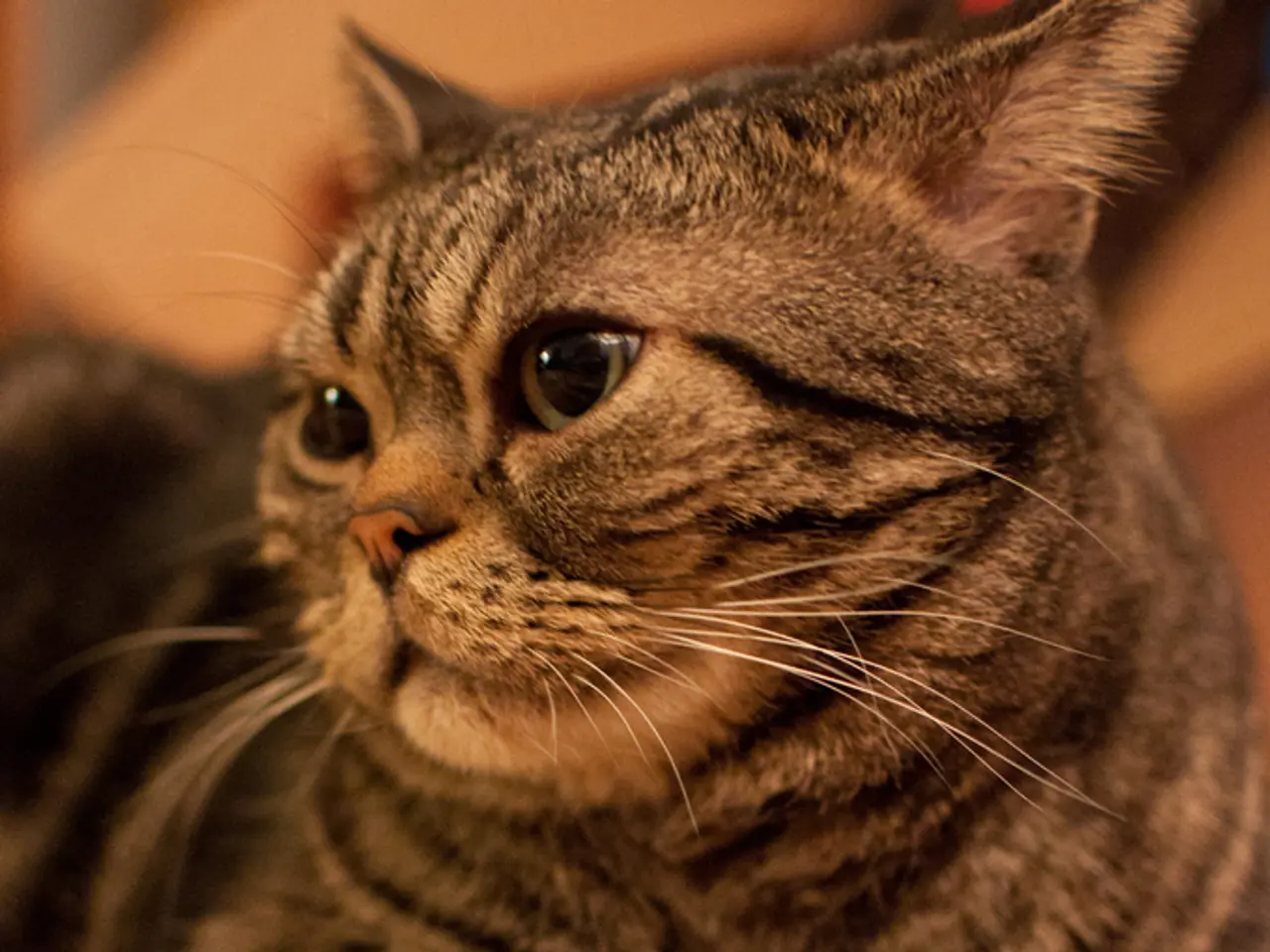Understanding and Treating Feline Depression Symptoms: Recognizing and Dealing with Depressed Cats
Cats, much like their human counterparts, can experience depression. This emotional state can significantly impact a cat's quality of life, leading to changes in appetite, sleep patterns, grooming habits, and social interactions.
**Recognizing Feline Depression**
Common signs of depression in cats include disinterest or general withdrawal, lethargy and increased sleep, loss of appetite, changes in grooming, altered vocalization, social behavior changes, and litter box issues. A cat that was once active and playful may suddenly lose interest in activities it once enjoyed, preferring to hide away or sleep more than usual.
These signs can overlap with medical issues, so veterinary evaluation is essential to rule out physical illness. If you notice any of these changes in your cat's behaviour, it is crucial to consult a veterinarian.
**Addressing Feline Depression**
Treatment for feline depression typically involves a combination of environmental enrichment, dietary support, and veterinary intervention when necessary. Environmental modifications such as providing a stable, enriching environment, maintaining a consistent schedule, and increasing interactive play can help reduce boredom and stimulate your cat.
Dietary adjustments and supplements, recommended by veterinarians, may support neurological health. In some cases, antidepressants or other medications may be prescribed under veterinary guidance.
Close monitoring and prompt veterinary care are crucial, especially because depressive symptoms like loss of appetite can lead to life-threatening conditions unique to cats, such as hepatic lipidosis.
**Preventing Feline Depression**
Moving to a new home is a common trigger for feline depression due to loss of familiar scents and territory, disruption of routine, and anxiety from the moving process. Strategies to help a cat adjust to a new home include maintaining a consistent routine, gradually introducing the cat to different areas, using familiar items, providing plenty of attention and reassurance, creating a safe and familiar space, and using pheromone diffusers to create a calming atmosphere.
By implementing these preventive measures, you can significantly reduce the risk of depression in your feline companion. Regular playtime, interactive toys, pheromone therapy, dietary supplements (under veterinary guidance), and consistent daily routines can support cat mental health.
In summary, recognizing feline depression hinges on noting changes in behaviour, appetite, grooming, and social interaction, and addressing it requires a combination of environmental enrichment, dietary support, and veterinary treatment when necessary. Early intervention improves prognosis and supports the cat’s overall quality of life.
Staying informed and attentive to pets' emotional needs can ensure they lead happy, healthy lives. Many of the principles discussed for feline depression can be applied to canine companions as well. It's important to remember that cats are capable of experiencing depression, and by understanding the signs and taking appropriate action, we can help our feline friends navigate through difficult times.
- Just like people, cats can exhibit signs of mental health issues, such as depression, which can have a substantial impact on their lifestyle and health-and-wellness.
- Physical examinations by a veterinarian are crucial to rule out any underlying medical conditions, as symptoms of feline depression can resemble those of other health issues.
- In dealing with feline depression, a mix of approaches including creating a stimulating environment, adjusting diet, and seeking veterinary intervention when needed can be beneficial.
- By offering regular playtime, employing pheromone therapy, and maintaining consistent routines, one can help prevent depression in cats, promoting their mental health and overall well-being.
- Changing homes may lead to feline depression due to stress, and implementing strategies like gradually introducing the cat to new areas, using familiar items, and creating a comfortable space can aid in the transition.
- Keeping abreast of pets' mental health and providing emotional support can contribute to their happiness and longevity, as many tips for feline depression can also apply to dogs. Recognizing that our pets, like cats, can experience mental health challenges and taking action to address them plays a significant role in enhancing their quality of life.




